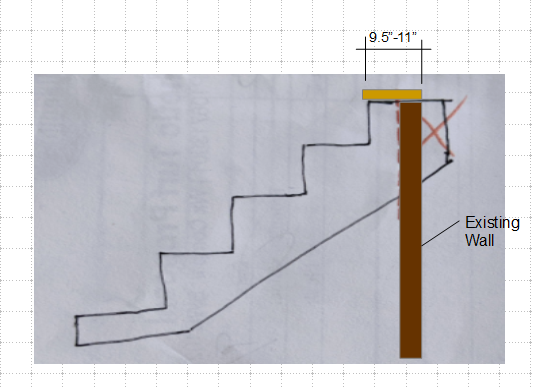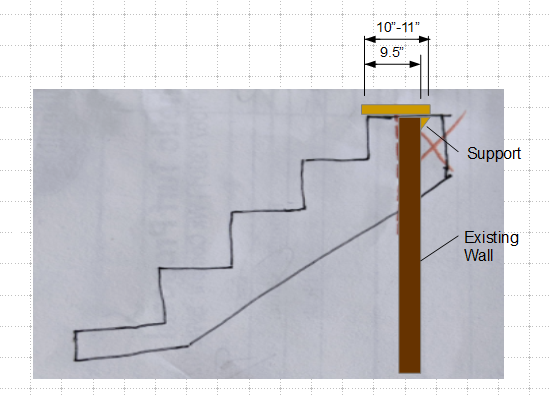OSHA 1910.25(c)(3) requires standard stairs to have a minimum tread depth of 9.5 inches (24 cm).
IBC 1011.5.2 requires that stair treads be 11 inches (279mm) minimum measured horizontally between the vertical planes of the foremost projection of adjacent treads and at a right angle to the treads leading edge.
IRC See Fredric Shope's answer.
OSHA and IBC determine the minimum tread depths and maximum riser heights based on research of stairways with various tread and riser dimensions. One important study by John Templer in 1976 showed that reducing tread depth to less than about 11 inches resulted in more missteps. Other studies have shown that as tread depth narrows missteps increase. Based on these results and others, the major building codes adopted standards for minimum tread depth and riser heights.
As this is not a major in-house stair, other than personal safety concerns, I assume you can use the minimum of the three.
Suggestion:


